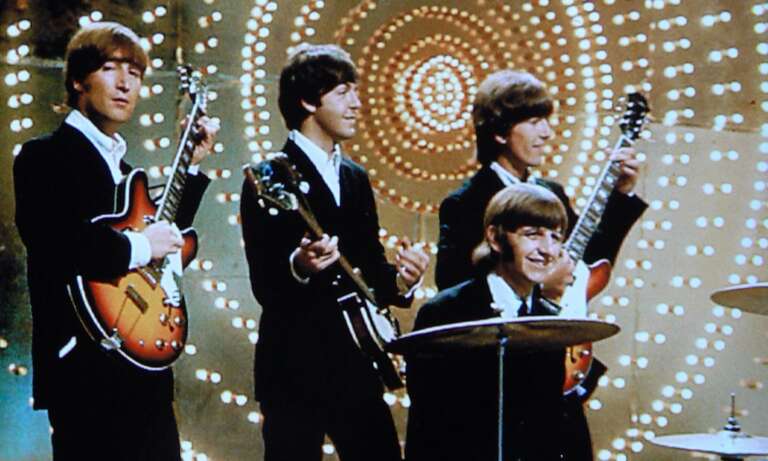The latest edition of the M Means Music podcast casts the spotlight on The Beatles’ Revolver, to mark the appearance of the 1966 landmark in newly-remastered and expanded editions. Host Daryl Easlea inspects the classic LP in a new 15-minute broadcast that features his personal analysis and musical highlights of a record that is now reaching yet another generation and gracing charts worldwide.
Shop the best of The Beatles’ discography on vinyl and more.
“Revolver is a truly rare breed of album,” says Easlea in the podcast, “one that stands up to repeated scrutiny and overexposure. Its exalted reputation and high-ranking position in every greatest albums of all-time list under the sun are well deserved.”
He describes Revolver as “an album where hardly anything sounds like anything else, relishing the freedom that your success brings you, and securing your place as the most important pop group in history.” The LP is placed in its historical context in the wake of The Beatles’ late 1965 release of Rubber Soul, which showed their creative palate expanding exponentially.
“As 1966 dawned, for the first time since 1962, the group enjoyed their first proper time off in four years; after adding some overdubs to the live concert film at Shea Stadium, The Beatles stepped away from their proposed feature film, A Time For Loving which was due to shoot from January. As a result, the group got off the treadmill.”
When they reconvened at Abbey Road’s intimate Studio 3 in April with producer George Martin, the time to experiment – in all senses – afforded them the freedom to create a record of extraordinary imagination and innovation.
Buy or stream the new editions of Revolver.
“For the first time, the group came together from outside their bubble and brought fresh and different ideas,” notes the host. “They had one simple wish – to make every track on the album sound different from the last. As a result, Revolver still has the power to surprise – a disparate body of work that sounds absolutely like the work of four individuals highly in tune with each other.”
Turning to individual tracks, Easlea notes: “It could only be argued that [Paul] McCartney’s beautiful ‘Here There And Everywhere’ is the only conventional love song on the whole album. Elsewhere, love is presented in terms of loss (‘For No One’), in relation to the weather (‘Good Day Sunshine’) or the complexity of communication (‘I Want To Tell You‘). ‘Got To Get You Into My Life,’ ostensibly about love, is actually a paean to marijuana.”
After covering many other unforgettable tracks, the podcast concludes with the ever-astounding “Tomorrow Never Knows,” which “points the way to not just the group’s future but also the next few years in rock. Asking producer George Martin to make him sound like the ‘Dalai Lama chanting from a hilltop,’ [John] Lennon’s looped and flanged drone still sounds unlike anything else in rock…it is the final word on the best Beatles album.”
Listen to M Means Music episode 32 on Revolver and to previous editions.
